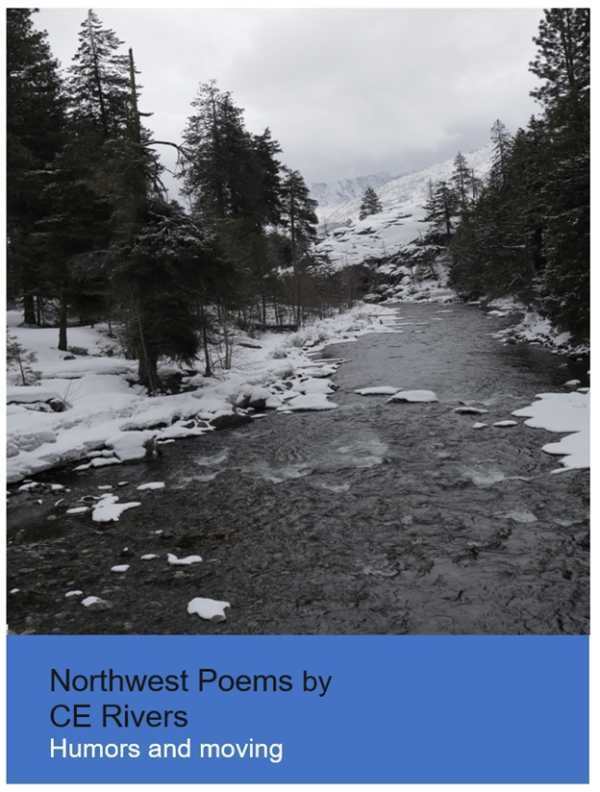
Northwest Poems
Humors and Moving
Personable and unapologetic, the poems collected in Northwest Poems are spirited in their observations of the mundane.
Playful, introspective, and sometimes elegant, C. E. Rivers’s poetry collection Northwest Poems narrates the curious nature of living an ordinary life.
These poems concentrate on everyday opinions, feelings, and digressions, threading a sense of universality and mystery into daily tasks. Some entries are insightful; others have the tone of preaching. Most assume a calm, measured tone.
The first and most extensive of the book’s six sections eschews global concerns—which predominate later sections of the book—to indulge the imagination. Herein, anthropomorphized animals run amok, days pass in unremarkable ways, poems are difficult to write, and Carl Sandburg’s poetry is lionized. Dry humor is a touchstone, with winks accompanying even sincere thoughts:
I have nothing to say today.
The usual life happened:
Watched rain fall,
Washed my clothes,
Dropped a dish and watched it shatter
And asked—whose life is this?
Elsewhere, fantastical meetings are imagined between people and other living beings, as when a trout talks a fisherman into packing up his rod and leaving the fish alone, or where an ant throws a party under an elm tree. In one entry, a cat shakes its head at a foolish man. And still other entries embrace people and objects with brimming emotions, as with an ode to the saxophone that ends with “There’s nothin’ like that saxophone / Playin’ in your head!”
The book’s love poems are few, but they take on the challenge of addressing the topic with fresh juxtapositions:
So many words spoken about love.
Rivers are flowing with words
So are canals and puddles,
Floating crumpled love letters and flowers.
However, the bulk of the book leaves its early playfulness behind. As it progresses, it moves into more anecdotal and political territory, and war, peace, and everyday decency become central motifs that are addressed with directness: “Oppression is practiced in many guises / To suppress minds or spirits, or break / Another person or group / Of cheer or for dominion.” The poems become repetitive in their seriousness, and their lines, which come to feel familiar, are uninspiring. And the book’s didactic entries clash with its otherwise conversational ethos: “Are You a Plücker” reprimands flower pickers, exhorting them to remember that “Every flower has a right to its natural end; Just Like you!”
Personable and unapologetic, the poems collected in Northwest Poems are spirited in their observations of the mundane.
Reviewed by
Willem Marx
Disclosure: This article is not an endorsement, but a review. The publisher of this book provided free copies of the book and paid a small fee to have their book reviewed by a professional reviewer. Foreword Reviews and Clarion Reviews make no guarantee that the publisher will receive a positive review. Foreword Magazine, Inc. is disclosing this in accordance with the Federal Trade Commission’s 16 CFR, Part 255.
